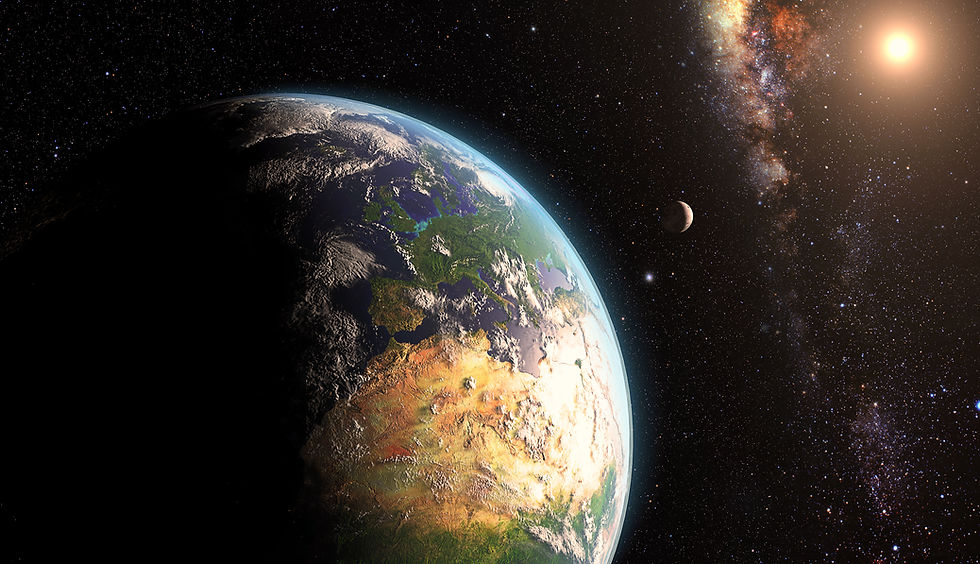
Genesis 1, the first chapter of the Bible, is foundational to the Judeo-Christian view of creation. It describes how God created the heavens, the earth, and everything within them. The narrative is both poetic and structured, outlining the stages of creation over a period of six days, with each day contributing to the establishment of the cosmos and life. Here’s a breakdown of the major themes and ideas within Genesis 1:
1. The Power of God's Word
The chapter begins with the iconic line, “In the beginning, God created the heavens and the earth.” This establishes God as the ultimate Creator. In Genesis 1, creation occurs through God’s spoken word alone. Each time God says, “Let there be…” something new comes into existence, whether it’s light, sky, land, or living beings. This pattern emphasizes the power and authority of God’s word, as everything responds to His commands.
2. Order and Structure
Genesis 1 follows a structured, rhythmic pattern, with each act of creation happening on a specific “day.” This orderly approach reflects the divine intention, suggesting a God who brings harmony and order out of chaos. The days of creation can be divided into two groups:
Days 1-3: God forms the foundational elements of the world—light, sky, land, and seas—establishing a space for life.
Days 4-6: God fills these spaces with the sun, moon, stars, animals, and ultimately human beings.
The sequence reinforces a sense of purpose and progress, with each day building upon the last.

3. The Goodness of Creation
After each act of creation, God observes what He has made and declares it "good." This repetition underscores the inherent goodness and perfection of the natural world. It’s a reminder of a harmonious and beautiful universe as initially created by God, setting the stage for humanity's role as caretakers of this world.
4. The Creation of Humanity
The creation of human beings on the sixth day is presented as the climax of God’s creative work. Genesis 1:27 states, “So God created mankind in his own image, in the image of God he created them; male and female he created them.” This idea of humanity being made in God’s image implies a unique connection to the Creator, with qualities like rationality, moral responsibility, creativity, and the capacity for relationship.
Humans are given dominion over the earth, entrusted with the responsibility to “subdue” it and “have dominion” over other living things. This grants humanity a significant role as stewards of creation, with the duty to protect and cultivate the earth.
5. The Sabbath
After six days of creating, Genesis 1:31-2:3 describes how God rests on the seventh day, blessing and sanctifying it as holy. This day of rest, known as the Sabbath, becomes a model for humanity to follow. It highlights the importance of rest and reflection, acknowledging that life should balance work with periods of restoration. The Sabbath is later enshrined in the Ten Commandments and remains a central part of Judeo-Christian practice and thought.

Theological Implications of Genesis 1
Genesis 1 offers a powerful theological statement about God, humanity, and the world. It paints a picture of a universe with purpose, shaped by a divine Creator who values beauty, order, and relationship. It places humanity in a unique role as caretakers and co-creators under God’s guidance, while also emphasizing the importance of rest and reverence for the created world.
In many ways, Genesis 1 is a statement about humanity’s origin, purpose, and connection to both the divine and the natural world. It's a foundational text that has shaped centuries of thought on ethics, purpose, environmental care, and spirituality.
Comments